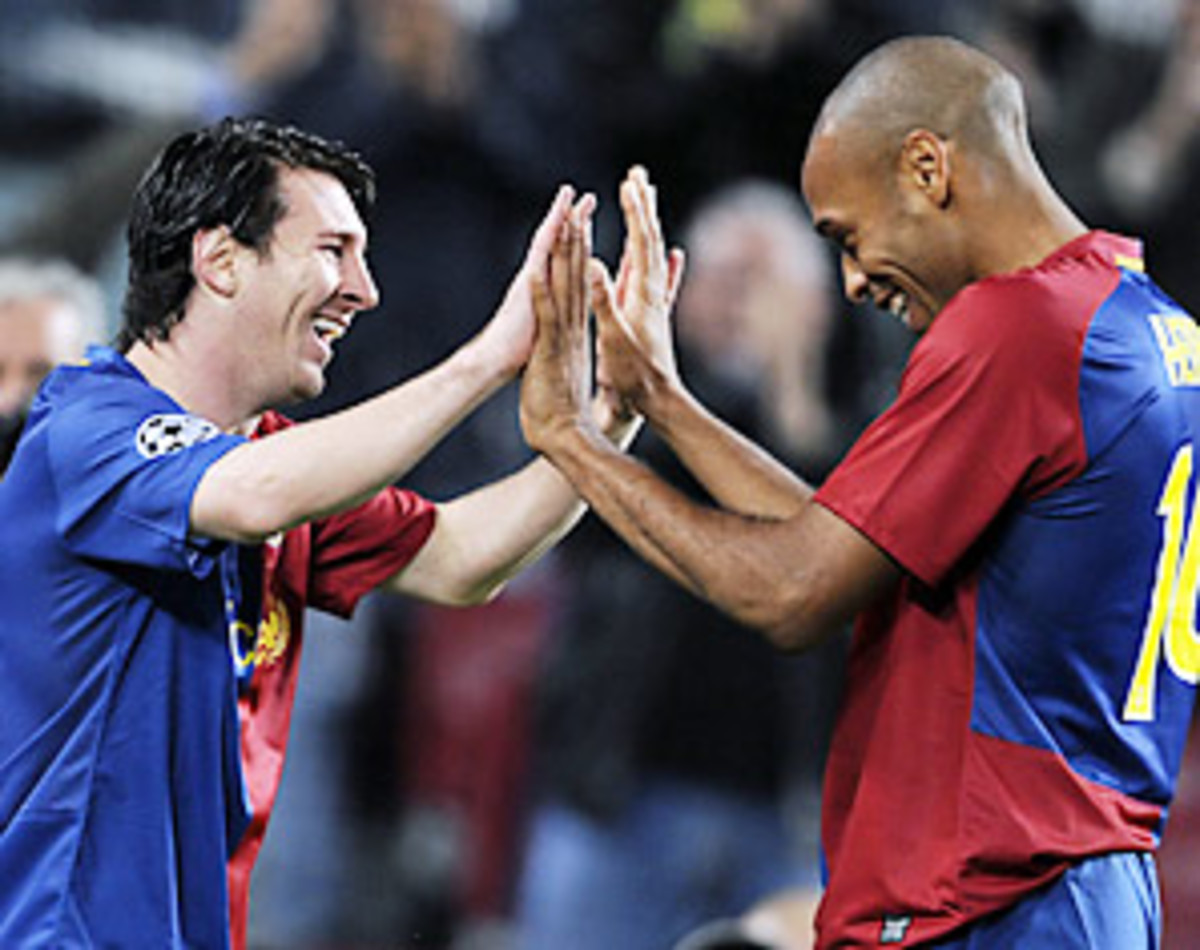This Barcelona is no Dream Team 2.0, but it's something exciting
A few years ago, I had the opportunity to spend some time with Pep Guardiola. At 33, he had chosen to end his career in Qatar largely because, as he saw it, the modern game had no room for a guy like him.
"I am not quick, I never had the stamina to run and run for 90 minutes like central midfielders have to do today," he told me. "I am not particularly good in the air. I am not physically strong. I don't dribble past opponents and I am not a good tackler. Though I can pass the ball fairly well."
Indeed he could (and, probably still can). He could pass the ball with a regularity and an efficiency and an intelligence which placed him in a class of his own. He was the metronome on Johan Cruyff's legendary "Dream Team" of the early 1990s. That side won four straight Liga titles and the '92 European Cup.
It was stunning to watch: Andoni Zubizarreta between the sticks, RonaldKoeman bossing the back, José Maria Bakero making runs from midfield, Michael Laudrup illuminating play, Txiki Begiristain and Hristo Stoichkov creating magic on the wings and, of course, a certain Romário churning out goals in industrial quantities. But the hub of Barça's wheel was Guardiola.
With such a pedigree -- and with such a debt of gratitude towards Cruyff ("Without him, I would never have played top-flight football") -- it was inevitable that people would draw comparisons between Cruyff's Barça and the version put out by Guardiola, who is in his own rookie season as a manager.
The parallels are tempting. Dani Alves can be a right-footed version of Sergi. Thierry Henry can impersonate Stoichkov. Leo Messi, of course, is an upgrade over Begiristain. Rafa Márquez can spray balls from the back like Koeman. And, of course, Xavi can fill the Guardiola role.
Tempting, but wrong. This Barcelona side may share a few traits with Cruyff's Dream Team (the emphasis on passing and creativity, the uncanny ability to score lots of goals), but it's a different animal. Cruyff's creation existed in a certain space and time, this side is a modern expression of that ethos which, in itself, means it's different.
For starters, Cruyff's team had no genuine holding midfielder. Guardiola sat in front of the back four, but he was certainly not a defensive stopper (as he admits). This one serves up Sergio Busquets or Yaya Touré as the midfield workhorse and with good reason: In the modern game, where few teams play two central strikers, there's bound to be an opposing forward dropping deep or a midfielder playing between the lines and you pretty much have to have one or more guys deputized to stopping him.
The parallel between Xavi and Guardiola is also off the mark. Both are, of course, exceptional passers with an uncanny sense of time and space. But Xavi is a more complete player, a more modern expression of the central midfield playmaker.
That said, Guardiola has done an exceptional job thus far. As a rookie boss -- and one promoted in-house no less -- he had to defer to others in the transfer market and make do with what he was offered. It's an open secret that Barcelona told him that it could only bring in more strikers if it managed to move Henry and Samuel Eto'o (and their hefty salaries).
The club failed on both counts -- not for lack of trying -- which meant that Guardiola was told he had to find a way to make it work with the two of them in the lineup, despite the fact that both were coming off lackluster seasons. Henry's desire had been questioned, Eto'o was -- allegedly -- permanently on the verge of picking up another career-threatening injury.
As it happened, both have done their part (in fact, Eto'o's scoring pace is so impressive you have to wonder what the doom-and-gloomers were smoking when they wrote him off), as has Messi. Promoting Busquets as the defensive stopper was a masterstroke, as it freed up Xavi to do more offensively and allowed newly arrived Seydou Keita to turn himself into a marauding midfielder.
It's still a work in progress, of course, and questions remain. What happens if Eto'o's bum knee acts up again? How does Gabi Milito fit in when he returns from injury? How long will Andrés Iniesta accept being shuffled all over the pitch? What if Bojan Krkic starts playing like an 18-year old? And, most of all, will Guardiola's inexperience weigh Barça down at some point?
There is no question that this team is not the finished product. But it's equally true that Guardiola has given Barça a clear identity and framework within which to grow. And what is most impressive is that he has managed to do it while respecting his footballing heritage and updating it to suit the modern game.






